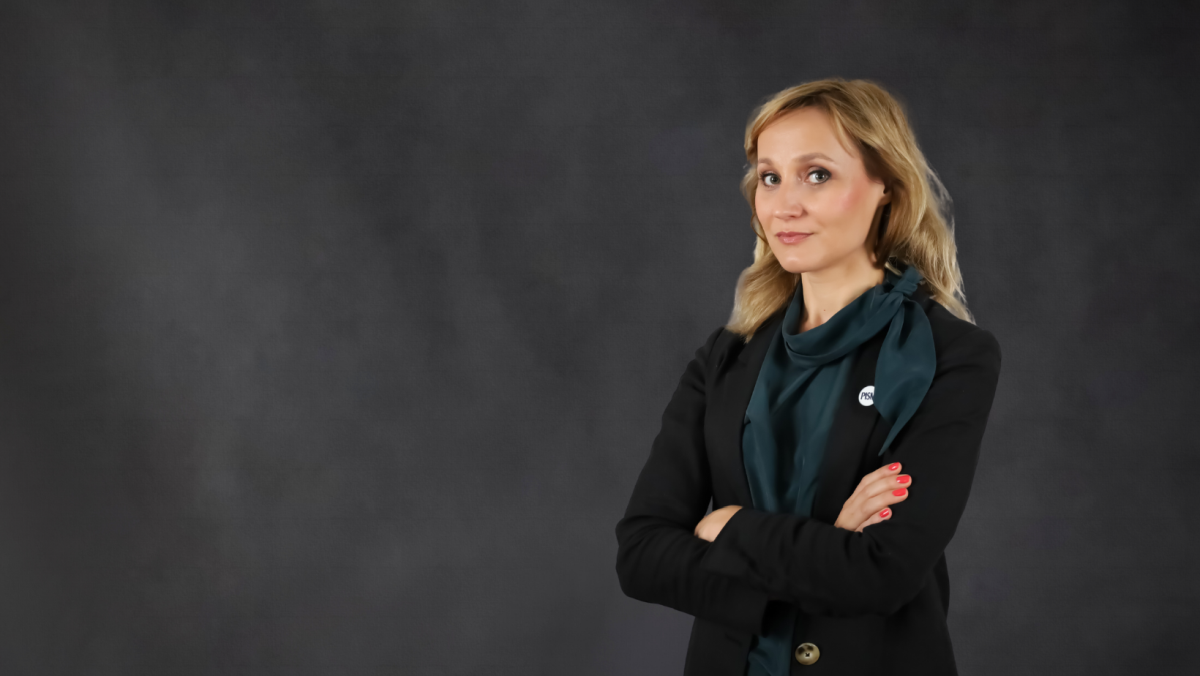Growth, Decarbonisation, Security: a Recipe for Strengthening the EU's Economic Condition
Mario Draghi and Enrico Letta, in their reports on the economic condition of the EU, urge the organisation to double down on its objectives formulated in recent years: stimulating growth in a manner consistent with climate policy and reducing dangerous economic dependencies. The most controversial issue is how the recommended measures will be financed. Their implementation also will require striking a balance between several priorities—not entirely compatible—both within EU economic policy and in relations with main economic partners.
.png) Yves Herman / Reuters / Forum
Yves Herman / Reuters / Forum
The authors, both former prime ministers of Italy (Draghi also served as the president of the European Central Bank), were asked by the European Commission (EC) and Member States to prepare reports on the organisation’s economy. Letta focused on the single market while Draghi analysed competitiveness. The diagnoses as presented in their reports are not optimistic. The Union, as an open economy, is severely affected by the superpower rivalry and the weaponisation of economic interdependence. The absence of a robust high-tech sector undermines the productivity of the EU economy, which overall is in urgent need of reform in order to face up to increasing global competition.
Key Objectives and How to Achieve Them
Both reports confirm the main objectives set out for the EU in recent years in Commission and European Council strategic documents, which are to remain an economic and industrial powerhouse while moving away from fossil fuels and reducing dependence on third countries, especially not like-minded ones.
Draghi stresses that lower energy prices are crucial for the future of economic activity in the EU and argues that this goal can be achieved without abandoning the green transition. He suggests investing even more in the development of renewable and nuclear energy, modifying legal procedures to enable projects to proceed more quickly, as well as continuing with energy market reforms.
Both reports point out that the EU does not make the most of its greatest assets: the power of the single market and the added-value of Member States acting together. Letta calls for simplification of the multiple regulatory frameworks that complicate cross-border business activities. The members’ Capital markets, where insufficient regulatory harmonisation makes it difficult for companies to attract investors, are a case in point. The authors encourage joint undertakings, such as in the procurement of military equipment or the purchase of energy, as well as the creation of large companies that could take full advantage of economies of scale and stand up to U.S. and Chinese competitors. The digital technologies and services sector (artificial intelligence, cloud and quantum computing) is seen as the key to improving productivity. Here, too, the authors argue for greater cooperation, including joint scientific projects and greater EU financial support for the commercialisation of their results. In external relations, the Union, they say, must, on the one hand, strive to widen the circle of economic partners (to diversify the supply of raw materials, promote EU standards, and gain access to new markets) and, on the other hand, react assertively to unfair competition, especially where it could damage key industries.
Draghi estimated that the implementation of his recommendations would require an additional investment of €750-800 billion per year. Private investment should account for a large part of that, but more public spending will also be needed. In this context, he suggests the EU take on more debt. He advocates modifying the structure of the EU budget and concentrating spending on strategic objectives. In particular, Draghi argues that EU funds should support large scientific and industrial projects, cross-border energy infrastructure, and/or mobilising private investment.
Alongside incentives for cooperation, there is also a call for restraint in terms of EU legislative activity. Both reports emphasise that overregulation hampers business. At the same time, the Draghi report calls for reform of EU governance. The pace of decision-making in the EU remains slow, which contrasts with the high dynamism of global activity. In this context, Draghi deems it reasonable to extend the use of qualified-majority voting (QMV) in decision-making. He does not rule out differentiated integration or, as a last resort, extra-treaty cooperation between determined members.
Challenges to Implementation
The most controversial issue is the financing of the measures they propose. As both investigators advocate the use of joint debt, they are challenging the “frugal” countries (Austria, the Netherlands, Germany, Sweden). Representatives of these states are sceptical about increasing the EU budget and rule out joint borrowing, claiming that it will not solve the Union’s structural problems. Letta’s calls for an end to liberalised rules for granting state aid (introduced temporarily to support the economy in the context of Russia’s invasion of Ukraine) and for financing industrial policy primarily from Community funds are contentious too. The largest countries, above all Germany and France, have benefited from extended subsidy opportunities for economic actors and will insist on maintaining them.
The implementation of Draghi’s and Letta’s proposals will require compromises on other issues. Restricting access to the EU market in the name of defending a level playing field in global competition may annoy trade partners and result in losses for EU companies, as well as complicate the supply of raw materials. Disputes over tariffs on Chinese electric vehicles or the trade agreement with Mercosur show that the Member States have different perceptions of the optimal degree of market protection. In turn, reducing bureaucratic burdens on companies can strain the drive towards sustainable competitiveness, which has focused on the promotion among businesses of high standards of labour rights and environmental protections. The ambition to create European “champions” may significantly distort competition in the single market. Finally, adopting ambitious reforms will be difficult in the context of the political instability in France and coalition disputes in Germany, and the growing influence of far-right groups contesting closer European cooperation.
Conclusions and Outlook
Both of the former Italian prime ministers’ reports encourage the Member States to deeper cooperation. They argue that only through the better coordination of activities, harmonisation of rules, and more joint actions can the EU retain the capacity to compete with the economic powers. The key challenge will be to overcome the thinking in terms of narrowly interpreted national interests and the short-term benefits of one sector in favour of a broader EU-wide perspective. The EC can facilitate such a change by presenting reform proposals that distribute the costs and benefits fairly.
The diagnoses and recommendations presented in the reports are generally in line with the undertakings initiated by the EU in recent years aimed at reducing dependencies (including in energy) and strengthening capabilities in advanced technologies and the defence industry. Both authors remain in line with the EU’s dominant thinking on trade relations, stressing that, while the Union should not give up on promoting cooperation and free trade, it must adapt to a world in which the growing great-power rivalry affects economic relations. For EC President Ursula von der Leyen, the reports’ conclusions constitute validation of her policy, and she is likely to refer to them when advocating a stronger role for the EU—and her Commission—in economic policy. The plea in the repots to increase the EU budget, however, poses a difficult challenge for the new Commission to reconcile the divergent visions of the Member States on the financing of EU objectives in the negotiations of the 2028-2034 financial perspective.
Although Draghi has been criticised for a lack of consultations with stakeholders from Central Europe, both the call for balancing economic and climate goals, and the very idea of increasing the EU budget, including expenditure on EU defence, are in line with Poland’s positions. Letta’s emphasis on the benefits of further EU enlargement is also important. However, the need to invest in the EU’s competitiveness may provoke significant cuts to regional and cohesion funds, which are important for Poland.





.jpg)
(1).png)